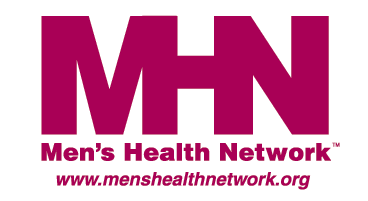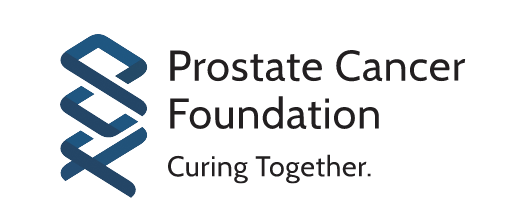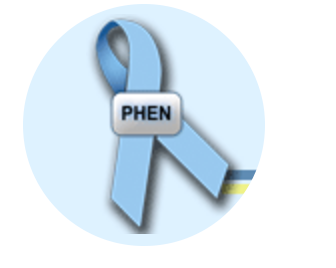You don't have to face advanced prostate cancer alone
A medical diagnosis can feel very solitary, but in truth, there is more support around you than you may think. Support groups can be a great source of inspiration and place to exchange feelings and ideas. Your healthcare team may also have additional resources that can help during treatment, so be sure to ask them.
Friends and family may also want to help in any way they can. Don't feel embarrassed or shy about accepting support from those who offer it. Receiving help from people who care about you can help keep you going during difficult times
Support groups2,3
Support groups for prostate cancer give you the opportunity to talk and spend time with men who share similar experiences and understand firsthand what you’re going through. While you may have never thought about joining a group before, a prostate cancer support group can offer you:
- A chance to talk about your disease and ask questions
- Help coping with advanced prostate cancer, such as how to share news of your disease with others
- A supportive environment to recognize milestones in treatment
- Help dealing with practical problems, such as getting to and from doctor visits

Types of support groups
IN-PERSON SUPPORT GROUPS
You may find that attending a support group in person is right for you. Ask your healthcare team if they know of any support groups in your area, or try calling local hospitals or treatment centers.
Finding a group that’s right for you3
Joining a support group for prostate cancer may seem a little intimidating at first. It’s important to find a group that fits with your individual goals and preferences. The National Cancer Institute recommends that prior to joining a prostate cancer support group, you ask the group's contact person a few simple questions. That way, you can better understand the purpose of the group and whether it will be a good fit for you.
Possible questions to ask:
- How large is the group?
- Who attends (supervisors, family members, others)?
- Is it specifically for prostate cancer patients?
- What is the age range?
- How long are the meetings?
- How often does the group meet?
- How long has the group been together?
- Who leads the group?
- What is the format of the meetings?
- Is the main purpose to share feelings, or do people also offer tips to solve common problems?
Support group alternatives
ONLINE SUPPORT GROUPS AND COMMUNITIES
If attending support groups isn’t in your nature, or you live in an area with no nearby support groups, you may want to consider an online group. These can offer you similar benefits as in-person groups from the convenience of your computer. There are numerous prostate cancer communities and support groups that you can find online, and several ways to find them.
Facebook and Twitter are two popular sites to search for, follow, and participate in support groups and communities.
To find a group on these sites, click on either of these icons, and type “Prostate Cancer Support Group” in the search field.


Other online communities
Us TOO International and Men’s Health Network are two of the many organizations you can contact online. You can also search “Prostate Cancer Support Group” on any search engine.
Explore these helpful online resources
There is a lot to know about prostate cancer. Fortunately, there is a lot of information available for you right online. The following websites provide information about prostate cancer, advanced prostate cancer research, treatment options, education, rehabilitation, advocacy groups, local prostate cancer support groups, and more.
American Urological Association Foundation

1-800-828-7866
The AUA Foundation is the world's leading nonprofit urological health foundation—and the official foundation of the American Urological Association. They partner with physicians, researchers, healthcare professionals, patients, caregivers, families, and the public to support and improve the prevention, detection, and treatment of urological diseases.
Men’s Health Network

1-202-543-6461 ext.101
Men's Health Network (MHN) is a national nonprofit organization whose mission is to reach men and their families where they live, work, play, and pray with health prevention messages and tools, screening programs, educational materials, advocacy opportunities, and patient navigation.
National Cancer Institute

1-800-422-6237
This useful gateway into the National Cancer Institute allows users to access a portion of the contents of PDQ — the Physician Data Query database. With detailed information about specific cancers, PDQ is written for both medical professionals and patients.
National Comprehensive Cancer Network

1-215-690-0300
NCCN is dedicated to improving the quality and effectiveness of cancer care. This not-for-profit organization is made up of 21 of the world’s leading cancer centers. The network develops treatment guidelines, including the NCCN National Comprehensive Cancer Network® (NCCN) Guidelines for Patients™: Prostate Cancer, which you can find on the site.
Prostate Cancer Research Institute (PCRI)

1-800-641-7274
PCRI is a charitable not-for-profit organization whose mission is to improve the quality of men’s lives by supporting research and disseminating information that educates and empowers patients, families, and the medical community.
Prostate Cancer Foundation (PCF)

1-800-757-2873
PCF, an organization dedicated to finding a cure for prostate cancer, is the largest private source for research funding for prostate cancer. It offers information on prostate cancer, treatment options, and clinical trials, and personal stories of survival.
The Prostate Health Education Network (PHEN)

1-781-487-2239
PHEN's primary mission is to increase prostate health education and awareness. PHEN's working philosophy is that “knowledge is the best defense against prostate cancer.” The organization focuses on men at the highest risk for prostate cancer in the United States.
Prostate Conditions Education Council (PCEC)

1-866-477-6788
A national organization committed to men’s health, PCEC is the nation’s leading resource for information on prostate health.
Us TOO International Prostate Cancer Education and Support Network

1-630-795-1002
Us TOO helps survivors of prostate cancer and prostate disease and their families foster a positive mental outlook. This organization offers fellowship, shared counseling, and discussion sessions in both formal and informal settings.
ZERO — The End of Prostate Cancer

1-202-463-9455
Known as the leading national nonprofit with the mission to end prostate cancer, ZERO advances research, improves the lives of men and families, and inspires action.

